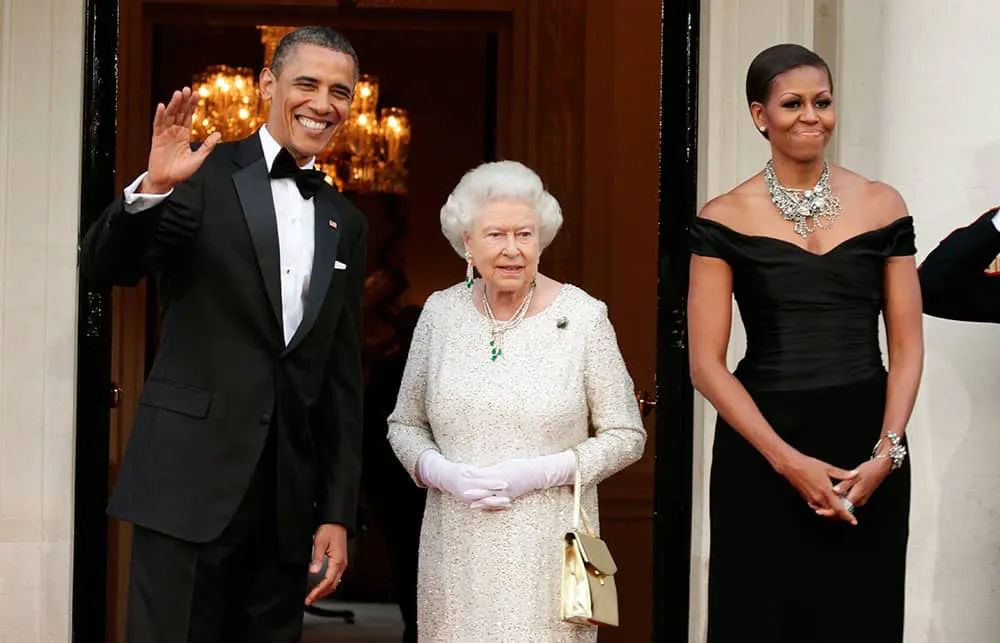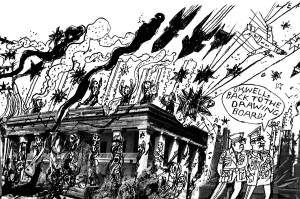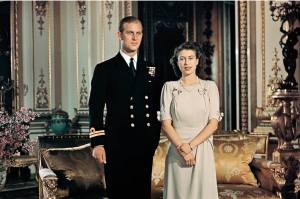I suppose it was inevitable that with the death of HM the Queen certain floodgates would open. During her reign it often felt as though there were forces that she was single-handedly holding back. As Lionel Shriver has noted elsewhere, they have come in particularly malicious form from parts of the US. But there is one part of the republican critique of monarchy that has returned which is too little addressed, and which I have found myself countering in recent days.
Not, I might add, from the sort of people who are simply hostile to Britain and its past, but rather from people who wish us well but are somewhat baffled by the sentiment that surrounds the monarch. Speaking to American friends and media this past week, I have found myself explaining that for us in Britain, the Queen or King is something like the living embodiment of the flag. Just as Americans swear allegiance to the flag, so in Britain our lawmakers, soldiers and the rest of the citizenry swear their allegiance to the monarch. Imagine that the American flag walked among you and you get a feeling of what the monarch means to us, I explain.
But there is another corner of the bafflement that requires a slightly harsher response, and that is the republican critique of monarchy which has a problem with the institution because it somehow epitomizes “unearned privilege.” It is a rather touching objection for Americans in particular to hold, because it suggests that theirs is a land in which unearned privilege is unheard of. Something is exposed here about America’s wrong-headed view of itself. But it also reveals something else about American politics, as well as Britain’s.
Anyone who has ever spent time in the US will know that the country’s politics is extraordinarily dynastic. You don’t have to go back to the Adams, Roosevelt or Kennedy families. Just witness the past few decades and you will notice an odd commonality at the highest level on both sides of the political divide: the idea that some people are born to rule.
For instance, over recent decades it has sometimes seemed as though the Bush family was almost exclusively expected to direct America. Every time an election came around yet another Bush was put forward to lead the nation, as though in a country of some 320 million people only the Bushes knew how to run the darn thing.
Across the aisle, the Clintons had the same issue. Bill was meant to hand the presidency over to Hillary amid speculation that Chelsea was one day to be the real star. Speaker of the House Nancy Pelosi comes from a political dynasty, as does almost everybody being touted for political office in every forthcoming election. Even the disruptors in American politics end up siring political movements. Will Michelle Obama be making a run at some point, people ask. Donald Trump Jr. is also expected to do so if the numbers add up. You sometimes wonder why the top US clans do not simply marry into each other’s families and from their intermarried family ranch simply rotate the presidency among themselves. If they got together, the Clinton-Bush-Kennedys could surely reach a pact to rule the US throughout the coming century.
In Britain, by contrast, we have no such problem. So far as I know there was never any speculation about whether Mark Thatcher would seek to be prime minister. We do not look to the Blair or Major families to save us from political strife. Nor is there intense interest in whether the children of David Cameron might be eyeing up a political run some time in the coming decades.
It is true that there are a few political dynasties in modern Britain. But they tend to be small and almost exclusively on the political left: the Benns, of course, Harriet Harman of the Pakenhams, a bit of Miliband-ry, the Kinnocks (amazingly enough). But by and large, hereditary electoral politics is something we avoid. “Ah,” some of my American friends say, “but what about the hereditary peers in the House of Lords?” To which I reply that anyone who thinks that the future of Britain is in the hands of the hereditary peers must be a number of decades if not centuries out of date.
There are various explanations for why this difference exists. You might point to the variations in the electoral system in America. You might point to celebrity being such a necessary component of US electoral politics. But I would suggest that it originates in a much deeper place: a suspicion that political wisdom, or at least political greatness, may indeed be hereditary and that some people are indeed “born to rule.”
I suspect it also comes from the fact that as a species we get a particular pleasure in watching how DNA works out: to see how far people can travel from the genes with which they are born, and to watch how blood rules them, or otherwise. In Britain the full force of this obsession is honed almost exclusively on the House of Windsor. What traits of the Queen do her sons and heirs exhibit? Where do they differ in temperament or tone? What is part of the obsession with Princes William and Harry but a way of watching how the Diana influence plays on? These are unsolvable but satisfying games. One of the roles of a constitutional monarchy is to draw all this attention, awe and ire on to one family — a family with mainly honorary powers.
Absent that system and the same human urges and weight are focused on families involved in electoral politics. If we did not have a monarchy I suspect that we might well be talking about whether the Blair children might come back to save the Labour Party, or whether the Thatchers have yet produced another family member with Margaret’s grit. Some people think that the obsession with monarchy is unhealthy. I couldn’t disagree more. As well as the constitutional peace that it brings, and the unity above politics that it provides, it prevents us from a form of politics which pretends to be meritocratic, yet is almost anything but.
This article was originally published in The Spectator’s UK magazine. Subscribe to the World edition here.


















